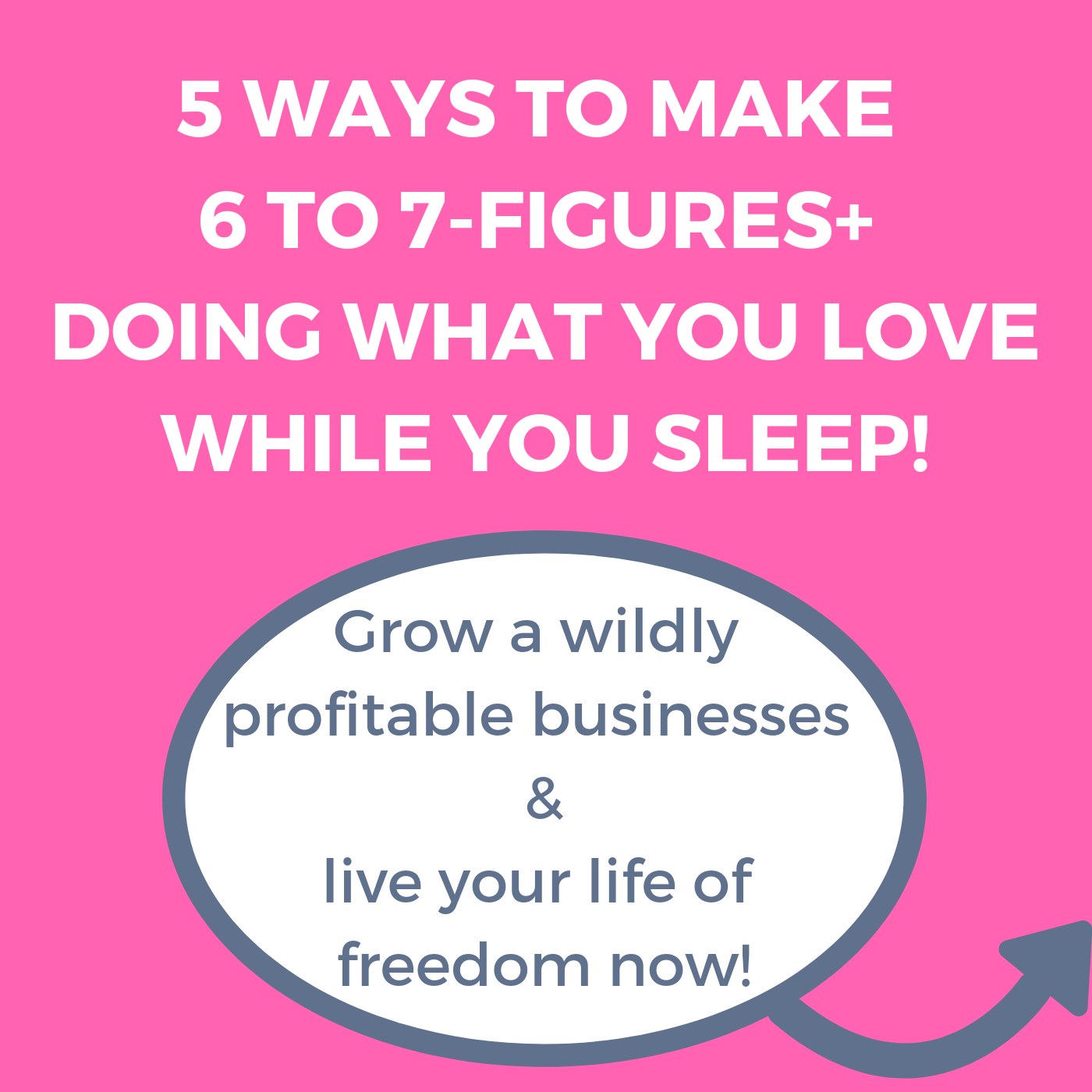To sum everything up….just get started! It doesn’t matter what the product is really. If you’re passionate about it, know exactly what you stand for, keep it consistent, yet stay flexible to change things easily to what works and throw effective marketing into the mix, and you’ll most likely be successful.
#1 — Discover your passion. Make a list of things that you just love to do in your spare time, things that you would do for free, things you would pay to do. Or, scratch your own itch. Have you ever had an idea and not written it down, only later to see that someone else did it? You thought: wow, if there was only this one thing, it would make my life easier. I should create that…and then you never did, only to see it a few years later probably making millions off of an infomercial? Any time you think of something that you wish you had to make your life easier and can’t find it anywhere, make a note of it.
#2 Know exactly what you stand for. Whole Foods is a great example of this. Some people even joke “Whole Paycheck” but despite being more expensive than other grocery stores, they are doing quite well. Whole Foods knows exactly what they stand for and they will not compromise. They have a clear vision of who they are and they stick to it. You will never see Coca Cola or Pepsi in Whole Foods. They will not carry any products that are full of additives and preservatives. It’s not part of who they are. They could probably sell millions of dollars a year in those 2 products alone, but it would take away from their integrity. They would not be honoring their word of who they are and what they stand for. So be very clear about what you stand for, and you will grow that much faster and easier. You’ll be able to communicate that to your customers because you will be focused on what you are and not veer off into multiple directions which would take extra time and energy away from what you really want to create, not to mention confusing the public and your team.
#3 Keeping things consistent is of utmost importance as well. Don’t let it stop you though, if it’s around something that’s not working or that could add value to your clients. It’s okay to make mistakes and change direction if things aren’t working the way you want them to, but be consistent in your message and be consistent in the value you add to the majority. If you are clear from the beginning, it should be easy to stay consistent. What I mean is, do not do things one way and then change it so drastically that it would disappoint those you serve, in a way that would cost you a lot of revenue. For example, if you own a sandwich franchise, you need to be consistent with the recipes because a client is going to expect the same thing at every place they go by the same brand. Let’s say they go to get an Italian sub at one shop and it has a certain amount of meat in it, then they go to a different store by the same name and that franchisee tries to save money by putting less meat in the sandwich. The customer will notice and either not go to that specific location again or they will boycott and badmouth the whole chain. This can be relevant for any business. If a massage therapist decides to charge $90/hour and gives the full hour then next time decides to only give 55 minutes for the $90, the client will notice and may not come back. Also, don’t look at it as I only lost $90. You have to calculate all of the revenue that you would lose throughout the years to come. If they hired you twice a month for 5 years to come you’d be losing $10,000 or more. Think about that next time you are serving someone. Before you change what they’re used to, ask yourself, “How much is this REALLY going to cost me?”
#4 In this day in age, it almost doesn’t matter what you are selling if you have effective marketing. Have you seen what a piece of Britney Spears gum sold for on Ebay? Or did you hear about the piece of toast that looked like the Virgin Mary? These things sold for hundreds of dollars! Did you know that there are people out there that HAVE to spend money? They don’t care if they can use it or that it serves a purpose, they just have the need to spend their money. It’s scientifically proven. Don’t get too hung up on what the product is, just start studying and implementing marketing. Never stop learning about all the different kinds of marketing that is available, never stop being creative (or hiring someone to be creative if it’s not your thing) and never stop marketing period. Create plans, execute them and track and follow up on them continually and forever.
In conclusion, it’s fantastic to create a business plan, especially running the numbers in the beginning, to have some direction, but don’t get so hung up on it that it keeps you from starting. Business plans are like guessing what’s going to happen. They are not a solid solution to how your business is going to go. Find a plan outline, do some research, fill it out, figure out the costs vs. what you could sell your product or service for, which is the potential income, do the numbers, do the numbers again and then begin. You may find out when you do the numbers that they don’t work. For example, my father started a business around selling organic soil. It’s a fantastic product. He’s been at it for 2 years and it’s going quite well. A big chain just bought 200 units! The problem he has now is that the profit is being eaten up in shipping costs because the product is so heavy. Now he has 2 choices. Figure out a way to get around it, or quit after investing huge sums of money, time and energy into this business. I asked him if he did the numbers and a business plan before he started and he told me he didn’t. Had he done some due diligence before he started, he may have discovered how much it would cost to ship containers that are a specific weight and then based on that, would have created a solution from the beginning, or chose a different business altogether. I think it was fantastic that my father got started right away and didn’t let anything hold him back, but this is a perfect example as to why it is important to do some due diligence, and research before getting started. Figuring out the costs ahead of time vs. how much you would have to sell it for and how many you would have to sell in order to create the profit you want, is probably the most important aspect of the business plan. It’s still guessing, but at least you’ll have an idea and/or could compare it to what is already out there and see if you can increase the sense of value/pricing (like Starbucks did) or play around with it to get the results you want. It’s okay that my Dad didn’t do it in the beginning, it’s just now he has to brainstorm and come up with a solution that he may have avoided. I think it’s incredible that he got started and has created such a great product that people are loving. If there is a will, there is a way, and I’m confident that there is always a solution. If he’s passionate about it, he’ll figure it out. One of the greatest things my Dad ever told me was “If you don’t do it, if you don’t take action, you’ll never know.” If you’re questioning yourself about doing it right or afraid that whatever your passionate about won’t work, accept it, move through it and just start!
Visualize a green light.
Just start!








